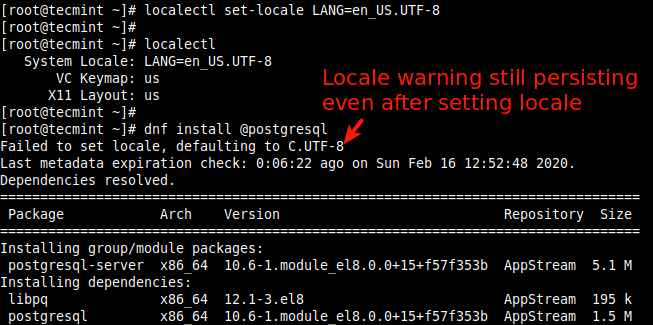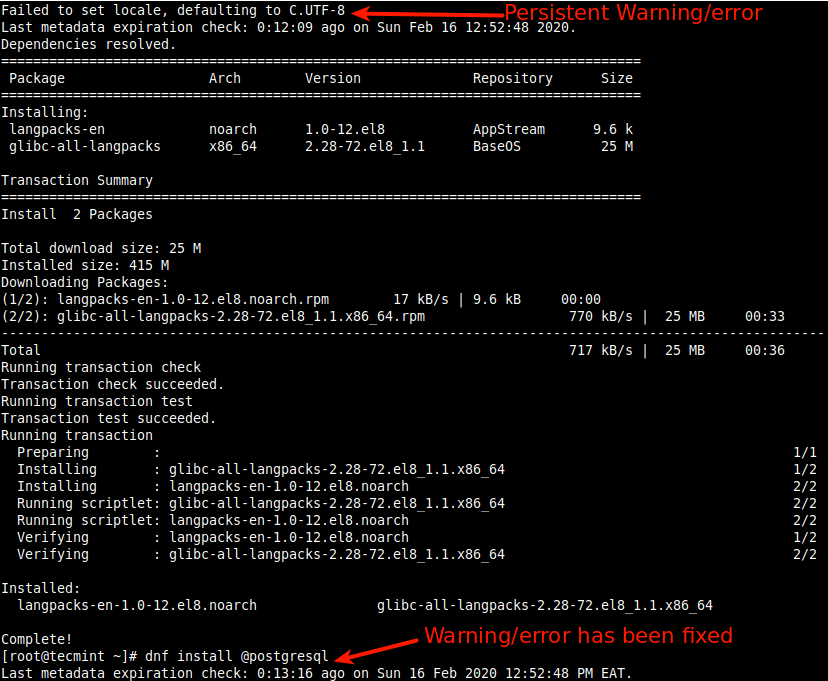Have you ever encountered the warning/error “Failed to set locale, defaulting to C.UTF-8” in CentOS 8 or RHEL 8? If yes, then this article describes how to fix this error. Note that this article should also work on any operating systems based on RHEL 8.
A locale is a set of basic system parameters that define things such as a user’s language, region and any special variant preferences that the user wants to see in their user interface.
Recommended Read: How to Change or Set System Locales in Linux
On POSIX platforms such as Linux and other Unix-like operating systems, locale identifiers are defined by ISO/IEC 15897. For example, UNITED STATES OF AMERICA (US) English using the UTF-8 encoding is en_US.UTF-8).
The following is a screenshot showing the warning/error when you run the dnf or yum command as shown.
To set system locale, use the localectl command. For example, if you want English – UNITED STATES OF AMERICA (US) using the UTF-8 encoding, run the following command.
# localectl set-locale LANG=en_US.UTF-8
Next, check if the system locale has been set by running the following command.
# localectl # dnf install @postgresql
Note that even after setting the system locale, the warning persists. This implies that the language packs are missing. To install them, go to the next section.
If a particular language pack is missing on your system, you need to install it to fix the above error. However, you can install all language packs provided by the glibc-all-langpacks package which contains all locales.
# dnf install langpacks-en glibc-all-langpacks -y
Alternatively, if you want to install locales individually, and thus have a smaller package installation footprint on your system, run the following command (replace en with the locale-code you want).
# dnf install glibc-langpack-en
Using the above procedure, we managed to fix the “Failed to set locale, defaulting to C.UTF-8” in CentOS 8 or RHEL 8. Hoping that this worked for you as well, otherwise. give us feedback via the comment form below.



